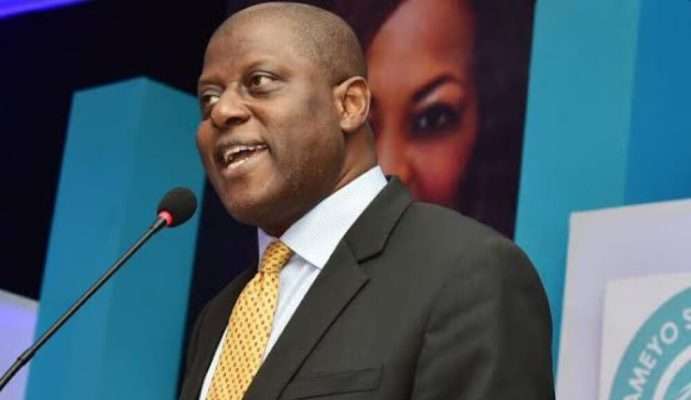FG Moves to End Fish Importation, Boost Local Production and Jobs in Nigeria’s Blue Economy

Story Written By Okafor Joseph JULY 17,2025
Federal Government Targets End to Fish Importation, Launches Major Boost for Local Aquaculture
The Federal Government has announced a bold plan to eliminate Nigeria’s reliance on imported fish by ramping up domestic production, creating jobs, and strengthening the nation’s food security and export capacity.
This was disclosed by the Minister of Marine and Blue Economy, Adegboyega Oyetola, during a high-level consultative meeting with leaders of fisheries cooperatives on Wednesday in Abuja.
The session was part of ongoing strategic efforts by the Federal Ministry of Marine and Blue Economy to overhaul Nigeria’s aquaculture and fisheries subsector and promote self-sufficiency.
“Nigeria must chart a new course toward self-sufficiency in fish production,” Oyetola declared. “We will aggressively scale up domestic fish output, reduce our dependence on fish imports, and reposition the sector as a cornerstone of sustainable economic growth.”
He assured stakeholders that the government is committed to supporting the industry through innovative policies, technical assistance, and expanded access to finance.
The meeting brought together key players in the fisheries sector, including the Fisheries Cooperative Federation of Nigeria (FCFN), Tilapia Aquaculture Developers Association of Nigeria (TADAN), Catfish Farmers Association of Nigeria (CAFAN), Women in Fish Farming and Aquaculture, and the Practising Farmers Association of Nigeria.
According to a statement by Bolaji Akinola, Special Adviser on Media and Communications to the Minister, the government is developing empowerment programs such as start-up grants to encourage youth and women participation in aquaculture — a major plank of President Bola Tinubu’s Renewed Hope Agenda.
“Getting more young people into aquaculture is essential, not only for boosting food supply but also for reducing unemployment,” Oyetola noted. “We are determined to ensure that no one is left behind in this sector’s transformation.”
Stakeholders at the meeting voiced concerns over longstanding challenges such as overfishing, limited access to funding, inadequate cold storage infrastructure, expensive imported fish feed, poor logistics, multiple taxation, and low youth participation.
In response, Oyetola said the Ministry is actively collaborating with international and local partners to tackle these obstacles. He revealed ongoing talks with the World Bank to secure funding for fish farmers and with the Nigerian Agricultural Insurance Corporation (NAIC) to offer affordable insurance packages.
The Minister also unveiled plans to replicate the successful aquaculture model at Oyan Dam across other regions, in partnership with the Federal Ministry of Water Resources, underscoring the need for cross-ministerial cooperation.
“This meeting marks the beginning of a long-term, transformative engagement,” he stated.
Also speaking, Wellington Omoragbon, Director of Fisheries and Aquaculture, emphasized the need for improved institutional frameworks and private-sector-driven strategies to attract investment and scale up productivity in Nigeria’s fisheries industry.






